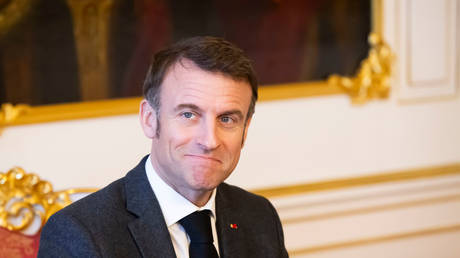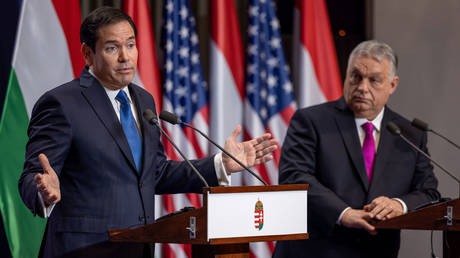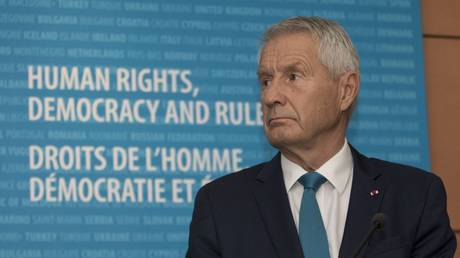
The potential confiscation of funds would violate international law and ultimately weaken Europe, the French president has warned
French President Emmanuel Macron has warned against the expropriation of frozen Russian assets, claiming that such a move would infringe upon international law and weaken Europe. The US and UK have been pushing for action to seize the holdings and use them to fund the Ukrainian government.
The West has frozen roughly $300 billion in assets belonging to the Russian central bank since the start of the Ukraine conflict.
During a joint press conference with Czech President Petr Pavel in Prague on Tuesday, Macron outlined his support for the European Commission’s proposal to tax profits generated from the reinvestment of the funds, suggesting that the move could potentially unlock €3-5 billion ($3.25-5.4 billion) annually to bolster Ukraine’s defense capabilities. He emphasized however that the core assets should remain untouched.
“We are not in favor of doing things forbidden in international law and opening a debate that I believe would weaken Europe,” Macron stated.
Western allies have been divided over the issue of confiscating the frozen billions to help Ukraine, and continue to debate legal ways to use the immobilized funds. US President Joe Biden has been pushing his fellow Group of Seven (G7) leaders to make progress on a plan to use the frozen assets to fund Kiev by the time they meet in June, according to media reports. US Treasury Secretary Janet Yellen insisted recently that the legal and moral foundations for confiscation were strong.
The EU, however, has been cautious about the legal and financial implications of such a move. Most of Russia’s assets are located in the EU, primarily at the Belgium-based clearing house Euroclear. Taking action without legal justification could reflect badly on the Western financial system and do harm to the bloc’s reputation, leading members have warned.
Moscow has condemned the freezing of its national wealth as illegal, and has stated that any confiscation of the money would be criminal. There are Western assets of similar value under Russian jurisdiction, which could be targeted in retaliation, Russian Finance Minister Anton Siluanov has said.




